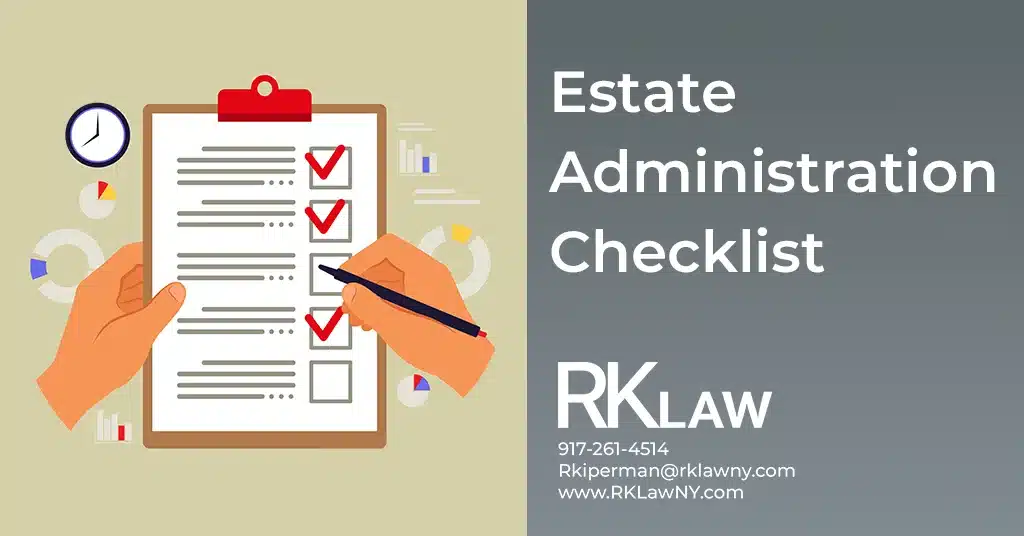Estate Administration Checklist
You Have Been Appointed Administrator of An Estate in NYC. What do you do now? An Estate Administration Checklist of tasks to perform to appropriate settle the estate is provided below. Download our Checklist.
Confirm There is No Will
Obtain a Fiduciary Bond, if so Directed by the Court.
(A bond is like an insurance policy for the beneficiaries of an estate and provides a recovery mechanism for them in the event that there is negligence or malfeasance by the fiduciary)
Collect the Decedent’s Assets.
(You will need to put on your investigator hat and figure out where the money is and how you can collect it into the estate account. Don’t forget Unclaimed Funds and those pesky Computershare stocks).
Open an Estate Account and Deposit Estate Assets
(This is where you place all of the money that you have collected to date.)
Pay Decedent’s Bills.
(Funeral and administration expenses come first. You must also pay taxes. If you receive claims, make sure that the claims are in proper order, pursuant to SCPA Article 18).
Obtain Appraisals and Pay Taxes If Any.
(If the estate you are handling is greater than $5.4 million dollars you may have to deal with a New York State Estate Tax. If there is real property, you will need appraisals and an inventory of all assets. If your estate consists of stocks, bonds, equities, or other income producing assets, and those assets generate more than $600 of income, you may have to file Fiduciary Income Taxes. You may want to discuss this with your accountant.)
Sell Property that Needs to be Sold
(Speak with your beneficiaries – do they want cash or kind?)
Prepare an Accounting.
Prepare Receipts and Releases
Make Distributions
Additional resources provided by the author
For more information, please contact NYC Probate Litigation, Guardianship, NYC Probate and Estate Planning attorney Regina Kiperman:
Phone: 917-261-4514
Fax: 929-556-2089
Email: rkiperman@rklawny.com
Or visit her at:
40 Wall Street
Suite 2508
New York, NY 10005
Visit Regina on LinkedIn
Visit Regina on Facebook
This page is made available by the lawyer for educational purposes only as well as to give you general information and a general understanding of the law, not to provide specific legal advice. By using this site you understand that there is no attorney client relationship between you and the lawyer. The post should not be used as a substitute for competent legal advice from a licensed professional attorney in your state. ATTORNEY ADVERTISING.
